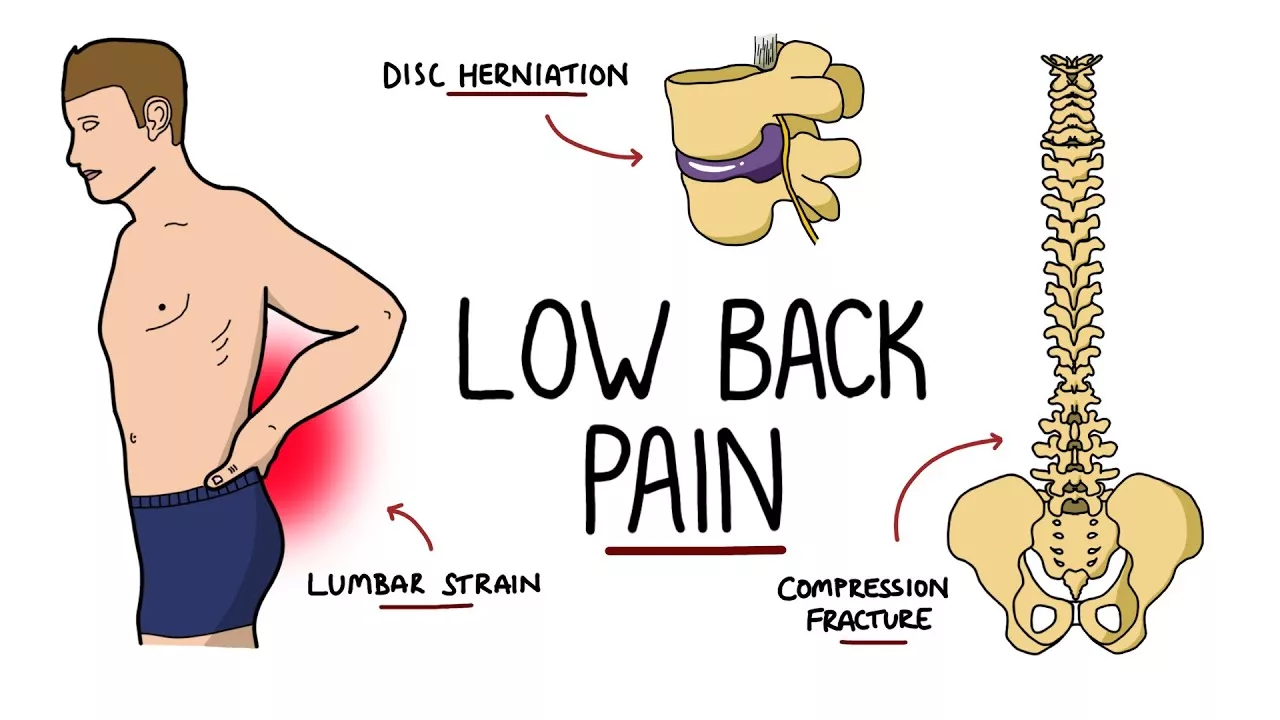Listen to Your Body: Signs It’s Time to Consult a Chiropractor for Lower Back Pain
Lower back pain is a common ailment that can significantly impact daily life, hindering mobility and diminishing overall well-being. While many individuals turn to traditional medical treatments, an increasing number are exploring alternative options, with chiropractic care emerging as a popular choice. When to see a chiropractor for lower back pain? In this blog post, we’ll delve into the intricacies of lower back pain, examining when it might be appropriate to seek the expertise of a chiropractor for relief. By understanding the signs, causes, and potential benefits of chiropractic care, you can make informed decisions about managing your lower back pain.
Understanding Lower Back Pain

- The Prevalence of Lower Back Pain:
- Lower back pain is a pervasive issue globally, affecting people of all ages and backgrounds. It can manifest as a dull, constant ache or a sudden, sharp discomfort, often impacting daily activities and quality of life.
- Common Causes of Lower Back Pain:
- Identifying the root cause of lower back pain is crucial for effective treatment. Causes can range from muscle strain and poor posture to more severe conditions like herniated discs, spinal stenosis, or degenerative disc disease.
- Signs and Symptoms:
- Lower back pain may be accompanied by additional symptoms such as stiffness, muscle spasms, radiating pain down the legs (sciatica), and impaired mobility. Understanding these signs can help determine the appropriate course of action.
When to Consider Chiropractic Care for Lower Back Pain?

- Persistent or Recurring Pain:
- If your lower back pain persists for more than a few days or recurs frequently, it may be a signal to consult a chiropractor. Chronic pain may be indicative of underlying issues that could benefit from targeted chiropractic interventions.
- Limited Range of Motion:
- Difficulty moving or a reduced range of motion in the lower back can be a compelling reason to see a chiropractor. They specialize in addressing joint dysfunction and improving spinal mobility, which can contribute to enhanced flexibility.
- Pain Radiating to Other Areas:
- Pain that radiates down the legs, known as sciatica, can be a sign of compression on the sciatic nerve. Chiropractors can employ techniques to alleviate pressure on the nerve, potentially providing relief from sciatic pain.
- Recent Injury or Trauma:
- If your lower back pain is the result of a recent injury or trauma, seeking prompt chiropractic care may aid in preventing the development of chronic issues. Chiropractors can assess the extent of the injury and formulate a targeted treatment plan.
- Postural Issues:
- Poor posture is a common contributor to lower back pain. A chiropractor can assess your posture and provide corrective adjustments to promote proper spinal alignment, potentially reducing pain associated with poor postural habits.
The Chiropractic Approach to Lower Back Pain

- Comprehensive Evaluation:
- Chiropractors conduct a thorough assessment, which may include a review of medical history, physical examination, and diagnostic imaging if necessary. This comprehensive approach helps identify the specific factors contributing to lower back pain.
- Spinal Adjustments:
- The cornerstone of chiropractic care is spinal adjustments or manipulations. By applying controlled force to misaligned joints, chiropractors aim to restore proper alignment, alleviate pressure on nerves, and promote optimal spinal function.
- Soft Tissue Therapies:
- In addition to spinal adjustments, chiropractors may use soft tissue therapies such as massage, stretching, and myofascial release to address muscle imbalances and enhance overall flexibility.
- Exercise and Rehabilitation:
- Chiropractors often prescribe specific exercises and rehabilitation techniques to strengthen the core muscles, improve posture, and prevent the recurrence of lower back pain. These exercises are tailored to the individual’s needs and condition.
- Patient Education:
- Chiropractors play a crucial role in educating patients about lifestyle modifications, ergonomic practices, and self-care strategies to support long-term lower back health. Empowering patients with knowledge is integral to preventing future issues.
Considerations and Limitations for Lower Back Pain

- Collaboration with Healthcare Professionals:
- It’s essential for individuals with lower back pain to communicate openly with their primary care physicians. Chiropractic care can complement traditional medical treatments, and a collaborative approach ensures comprehensive and well-coordinated care.
- Underlying Medical Conditions:
- Chiropractic care may not be suitable for all lower back pain conditions. Individuals with underlying medical issues such as fractures, infections, or tumors may require more specialized medical interventions. A thorough evaluation by a healthcare professional is crucial to determine the most appropriate course of action.
- Individual Responses to Treatment:
- Responses to chiropractic care can vary among individuals. While many experience significant relief, others may find only partial or temporary improvement. It’s important to maintain realistic expectations and discuss progress with your chiropractor regularly.
Conclusion: Chiropractor for Lower Back Pain

Deciding when to see a chiropractor for lower back pain involves a thoughtful consideration of the nature and duration of your symptoms. Chiropractic care offers a non-invasive and holistic approach to addressing the underlying causes of lower back pain, making it an appealing option for many. By recognizing the signs that may indicate the need for chiropractic intervention and understanding the principles of this form of care, you can embark on a journey toward improved lower back health. As with any healthcare decision, consultation with your primary care physician is crucial to ensure a well-coordinated and personalized approach to managing your lower back pain.
BEST CHIROPRACTOR NEAR ME IN ORLANDO, FLORIDA
CALL NOW +1-407-434-7246
If you have suffered any type of injury or have been experiencing pain that just won’t go away regardless of what you do, then all you have to do is call and speak with our friendly staff. Find Best Chiropractic Care in Orlando, Florida. Our team can help you get the treatment you need and ensure that the pain you experience is alleviated – once and for all.
We are proud to serve the areas of Orlando, Altamonte Springs, Haines City, Plant City, Kissimmee, Winter Haven, and Ocala.
Contact us for Chiropractor near me in Orlando, Florida for an Appointment Today.
Should I go to a chiropractor if my lower back hurts?
Instead of treating consistent and intense lower back pain with over-the-counter medications, a visit to your local chiropractor can be a safer and more effective treatment method for your lower back pain. Treating your lower back pain early can prevent permanent damage caused by chronic lower back pain.
How many chiropractic sessions do I need for lower back pain?
For acute low back pain, six to 12 sessions of chiropractic treatment over the course of two to four weeks is standard. These initial treatments emphasize the passive (non-exercise) approaches of manual therapy to relieve pain and improve function.
Is massage or chiropractor better for back pain?
However, the key difference lies in their specialties: chiropractic care is ideal for treating musculoskeletal ailments such as back pain and neck pain while massage therapy is focused on improving circulation and relaxation.
Can chiropractor fix back problems?
One way you can relieve your pain is by visiting a chiropractor. Chiropractors help with a lot of different issues, but they are especially good at treating back pain, so we've outlined how you can get relief with the help of a chiropractor.
Is chiropractic safe for back?
Many of those who suffer from back pain find chiropractic care beneficial. As a licensed health care professional, a chiropractor can help with back pain. In some cases, chiropractic care is not enough - a patient might need to see a spine specialist instead.



